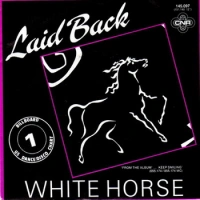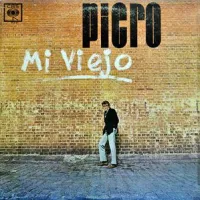
Alright, time for another one of these. Despite having only written in length about a handful of disco singles in the past, it remains one of my favorite ever genres to review. With all the intersections of culture, identity, and a multitude of common themes, there really is more than meets the eye with a lot of these singles often played on dance floors. And of course, many of them are exactly that as well – mindless uptempo dance tunes meant to get club-goers in the mood to boogie all night long, with no ulterior motives in place. There’s a whole lot of trash in this genre, that’s for sure, but for some reason that only makes the true gems shine all the more brighter.
Take this song, then. “Don’t Leave Me This Way” by Thelma Houston, with its dreamy first couple of verses that take its time before really exploding in a wave of emotion once that chorus really, truly kicks in. This is true 70s dance floor fodder, if I’ve ever seen it. I’ve already written a couple sentences about this song for my overview of 1977’s top 100 songs, but it honestly needs far more than just a paragraph. This truly is one of the definitive singles of the disco era, and for more ways than that which may be evident on the surface. I do hold true with my conclusive statement in my initial write-up on this song – Houston really did deserve a much bigger career than she eventually got, even if the power of this single does surpass generations.
Few may know, however, that this record as we know and love it is actually a cover song from a couple years earlier. Written by Kenneth Gamble and Leon Huff, with collaboration from Cary Gilbert, this song was initially handed over to Harold Melvin & the Blue Notes – with lead vocals by Teddy Pendergrass – for their 1975 album Wake Up Everybody under Gamble & Huff’s label Philadelphia International. Although the album’s lead single of the same name would become a top 20 hit on the pop charts, “Don’t Leave Me This Way” failed to make much of a splash at all (although it reached #5 in the UK). This original record contained many elements that comprised what has defined the 70s Philly Soul sound – particularly the swelling strings, rhythmic hi-hat cymbals, and soulful vocal delivery from Pendergrass. And like the better-known cover that would follow, this version introduces the song’s basic format of softer verses offset by a more intense, passionate chorus. To casual listeners, not too much seems to have been changed from this original version to the chart-topping cover version – however, the changes that were made were certainly vital to the song’s eventual success.
In 1976, the song was brought over to Motown for a disco-infused cover version. This wasn’t exactly a new idea for the disco scene – most notably, Gloria Gaynor’s cover of The Jackson 5’s “Never Can Say Goodbye” was a smash hit the previous year and would go on to become one of the defining hits of the genre. Taking a preexisting, recognizable pop tune and laying a dance beat over it just seemed like one of the quickest, easiest ways to make a quick buck in this thriving industry. Although “Don’t Leave Me This Way” wasn’t quite as huge of a hit, my guess is that the ways in which the Philly Soul sound lent their aesthetic to what would become the predominant disco sound (especially the lush instrumentals and intense lyrical themes) made this particular track attractive enough to cover. Initially, producer Hal Davis intended this to be Diana Ross’s follow-up to her own disco-infused chart-topper “Love Hangover”, but it was reassigned to give up-and-coming performer Thelma Houston a chance. This recording was released as a single in December 1976 and gained enough traction to top the Hot 100 for a single week in April 1977, as well as the disco and soul charts. Additionally, it won the Grammy for Best R&B Vocal Performance (from a female artist) – not bad from an artist who had never had a hit to her name in ten years of recording!
I’ve found that the best way to discuss cover songs (especially particularly exceptional ones like this) is to compare and contrast it from the original and recount how it changes the overall sound and/or mood of the record. In the Blue Notes’ version, a softer, sleeker R&B production is favored, with flutters of guitar riding above the prominent violins and deep percussion. Moreover, Pendergrass is husky in his delivery, mournful at first with his utterances of, “Don’t leave me this way; I can’t survive…”, but then brought to an emotional climax in the chorus (“Ahhh, baby, my heart is full of love and desire for you”) with assistance from the backup vocalists. Thelma Houston’s version, on the other hand, takes things in a slightly different direction. The vibrant strings are still here, but the drumming opts more for a four-on-the-floor disco rhythm and the bassline that runs throughout the track is just spectacular. And while there’s no denying that these instrumentals bring their own power to the track, much of it is guided by Houston herself, with thick, textured vocals that basically guide the whole track. Unlike Pendergrass who sticks pretty strictly to the basic melody, Houston takes her own liberties with it, flowing in, out, and around the song like a show-stealing gospel singer.
And there’s no denying that the chorus is just so, so much stronger here. I mean, it’s perfectly passable in the original, for sure; it gets the job done and is not at all unpleasant to the ears. Yet somehow, when Houston sings, “My heart is full of love and desire for you”… it’s somehow all the more believable. The emotional gravitas she brings to the recording is absolutely perfect for the general extravagance that so clearly defines the disco era. It’s similar to the extra weight that Gloria Gaynor puts on her version of “Never Can Say Goodbye” – the situation certainly seems all the more dire than when 12-year-old Michael Jackson sings these same words, as pleasant as he makes it all sound.
It is a tad ironic, I guess, that this song would be one to so successfully fill the dance floors of every club in the country, considering that its lyrics are very explicitly concerned with the topic of yearning and struggle to the point of emotional pain. The first verse alone states clearly, “I can’t survive, I can’t stay alive, without your love”, blatantly teasing some suicidal ideations. There’s no denying, though, that darkness and sad times have been at the heart of disco since these early days – take a look at The Trammps’ “Disco Inferno”, which contains the line, “I couldn’t get enough, so I had to self-destruct”. Or even Bee Gees’ smash hit “Stayin’ Alive”, which clearly outlines the roughness of inner-city living in its lyrics. This song’s chorus, then, works as a sort of catharsis – when Houston sings, “You started this fire down in my soul / Now can’t you see it’s burning outta control” she asserts her own agency in this situation by making a clear demand to be treated the way she deserves. Certainly this must have resonated to the many on the dance floors, who possibly retreat to discos to escape their own dismal realities.
And that’s really all there is to say here. With all this kept in mind, it’s really no wonder how this has come to be known as one of the defining singles of the disco era. Sadly, Motown didn’t do much to keep Houston’s career alive in the mainstream, and with the plethora of other disco acts popping up at this time, she soon faded into obscurity. Nonetheless, the powerhouse performance she gives on this track alone is one for the ages. Such displays of unbridled sonic ecstasy are the reason why so many folks find their calling out on the dance floor, especially during these days when disco divas reigned supreme. And considering that this isn’t even the original version of this heartbreak tune, this record really has no business being as good as it is. Nonetheless, I’m so glad it is.









Pingback: All You Need To Know About “Don’t Leave Me This Way” (1977) by Thelma Houston — Films Like Dreams, Etc. | steveluffradio